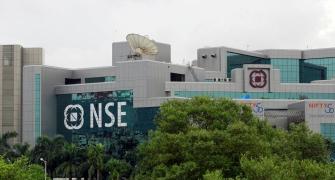Given that India imports more than 70 per cent of its oil and gas requirement from outside, energy security is a high priority item on the government's agenda. In order to accelerate hydrocarbon discoveries, increased emphasis has been laid on E&P through several rounds of NELP.
They have yielded benefits in the form of huge gas discoveries in the KG basin and oil discoveries in Rajasthan. Greater clarity on the taxation of natural gas production will go a long way in incentivizing domestic production. The midstream segment will be a direct beneficiary of increased volumes.
Thus, prospects of the upstream and midstream oil and gas sector look bright. The downstream segment however, continues to suffer on account of government regulations.
Till a sustained reduction in the crude oil prices is observed, the prospects of the oil marketing companies largely hinge on ad hoc government policies.
|
|
Tax holiday under section 80-IB (9) of the Income Tax Act on the profits from the production or refining of mineral oil, has been extended to natural gas. This will be available to blocks under the NELP-VIII round of bidding. It will also be retrospectively provided to existing blocks.
|
|
|
An expert group will be set up to advice on a viable system of pricing petroleum products, which will be broadly in synch with global prices.
|
|
|
Tax incentives will be provided on capital expenditure on the laying and operating of cross country natural gas, crude or oil pipeline networks for distribution on common carrier principle.
|
|
|
A blueprint will be developed for cross country gas pipelines leading to a national gas grid to facilitate transportation of natural gas across India.
|
|
|
Excise duty on naphtha reduced to 14%.
|
|
|
Diesel blended with up to 20% bio-diesel fully exempted from excise duty.
|
|
|
The ad valorem component of excise duty of 6% on branded petrol and diesel will be converted into a specific rate. Such petrol would attract excise duty of Rs 14.5 per litre instead of '6% + Rs 13 per litre'. Such diesel would attract excise duty of Rs 4.75 per litre instead of '6% + Rs 3.25 per litre'.
|
|
|
People's participation in disinvestment programs will be encouraged, although at least 51 % government equity will be retained in public sector enterprises.
|
|
|
Fringe benefit tax (FBT) abolished.
|
|
|
Rate of minimum alternate tax (MAT) on book profits has been increased from 10% to 15%, but with a provision of carrying forward the tax credit on MAT to ten years from the current seven years. |
|
|
The domestic upstream segment will benefit from the extension of tax holiday under section 80-IB on the production of natural gas. It will also encourage foreign energy majors to bid for exploration blocks to be auctioned shortly under the NELP VIII rounds.
|
|
|
The midstream gas segment will benefit from the announcement of the national gas grid. This will facilitate transport of greater volumes across the country. The midstream segment of both natural gas and oil industries will benefit from the investment linked tax benefits in laying down transportation pipelines.
|
|
|
The downstream segment would be disappointed as there was no clear announcement on the deregulation of fuel prices. However, we will have to wait and watch what recommendations the expert group makes and how far they are implemented.
|
|
|
The downstream segment will enjoy greater visibility on excise duty as branded petrol and diesel will now attract specific duty instead a duty that varies according to value of the product.
|
|
|
Less clutter in the corporate tax structure will make investments into India's energy infrastructure more attractive. |
|
|
Upstream energy companies such as ONGC and RIL, who are significant producers of natural gas will benefit from the tax exemption on the production of natural gas in India.
|
|
|
Companies looking to enter into joint ventures with foreign energy majors for bidding in the forthcoming NELP rounds will find it easier to find partners. The list includes almost all the major oil and gas companies in India, but ONGC and RIL will benefit the most.
|
|
|
Oil marketing companies - Indian Oil, BPCL and HPCL - will continue to suffer from under recovery of input costs till the time the recommendations of the expert committee are formulated and implemented.
|
|
|
The investment based tax incentives on gas, crude and oil pipelines will benefit the largest bulk transporter of natural gas - GAIL and the largest transporter of oil products - Indian Oil.
|
|
|
City gas players like GAIL, IGL and Gujarat Gas will also benefit from the boost to the natural gas industry from the 80 IB tax holiday, investment based tax incentives and national gas grid blueprint. | |







